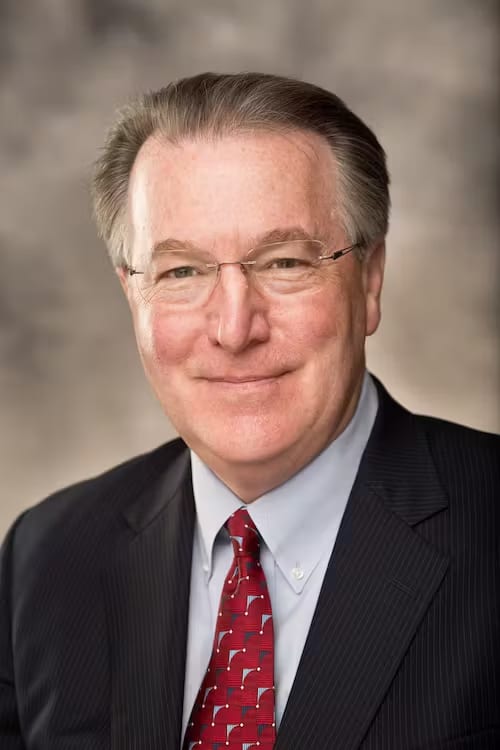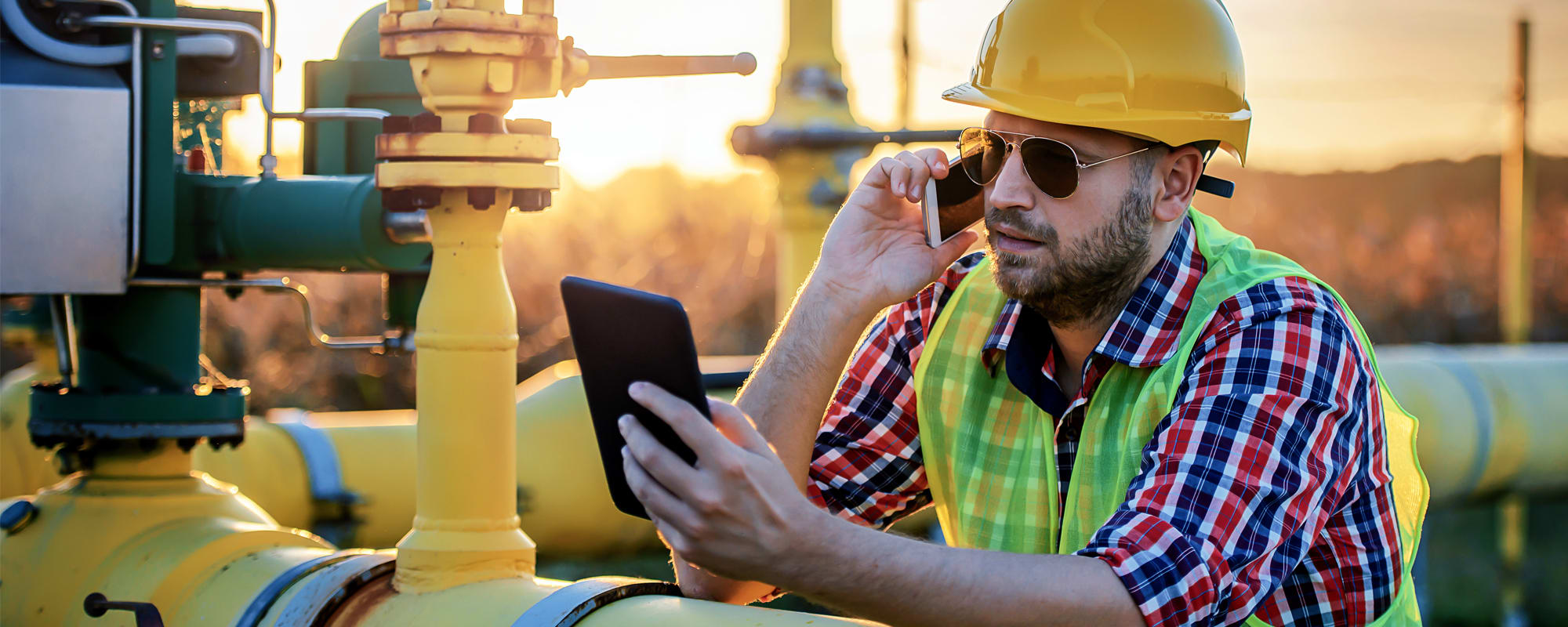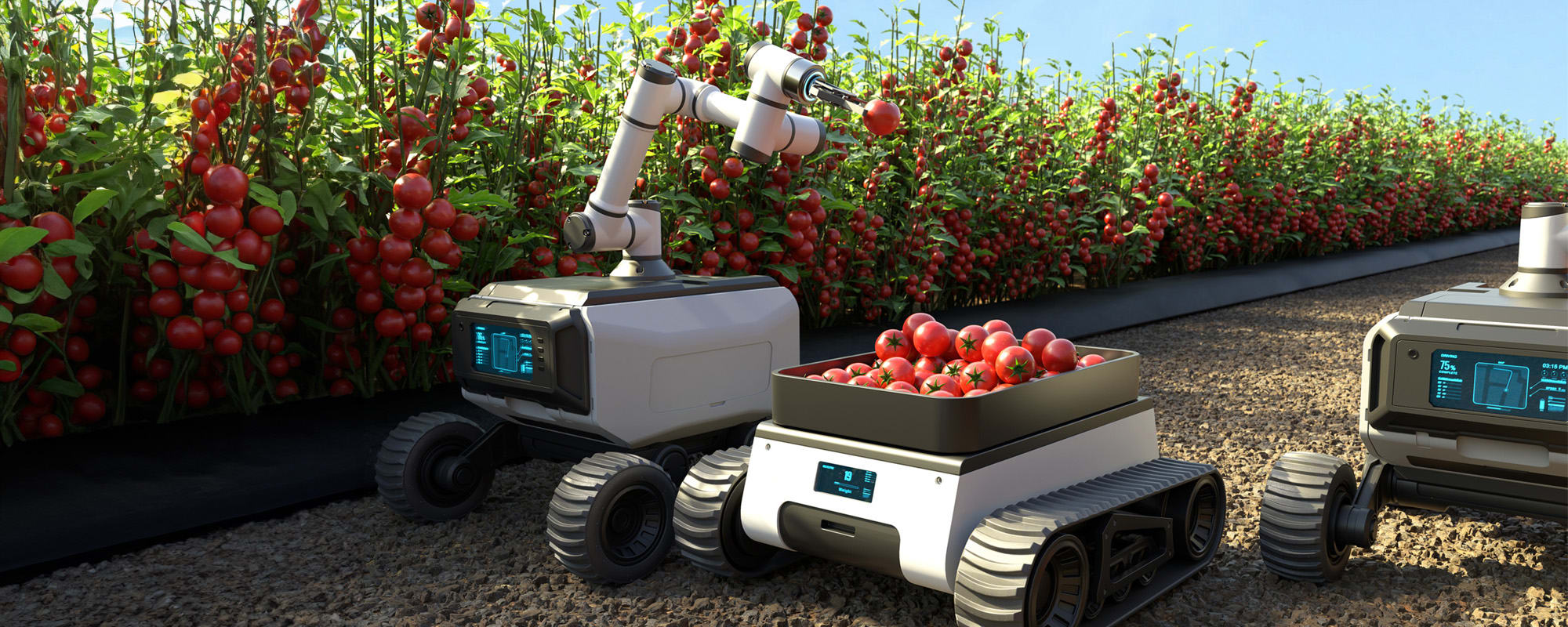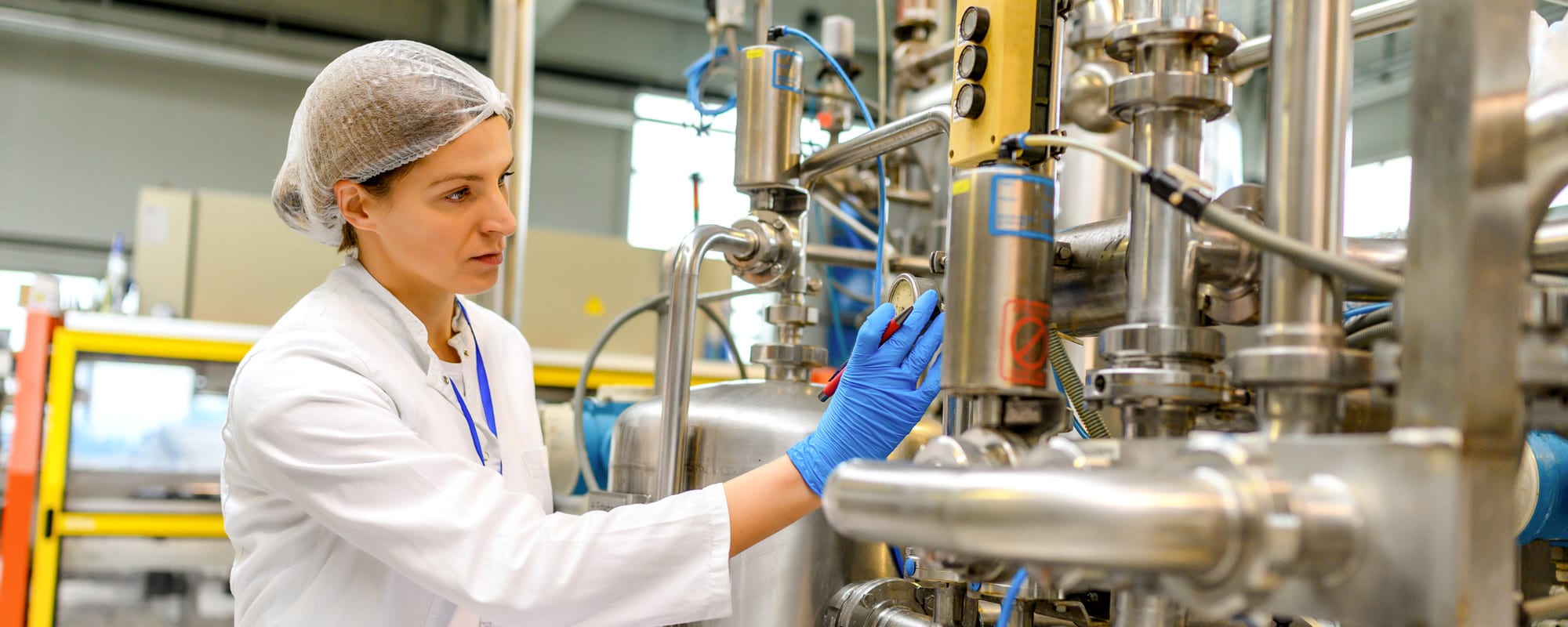In celebration of Earth Day on April 22 and Earth Month, which spans the whole of April, 10 of our trusted suppliers joined us and RS DesignSpark in sharing one contribution they’re making as a company to help protect Earth’s natural resources for future generations. Learn more about these corporate sustainability efforts, as well as how you can contribute to preserving the environment.
Earth Day was first celebrated on April 22, 1970. Catalyzed by the inextricable links between pollution and public health revealed by Rachel Carson’s 1962 New York Times bestseller, “Silent Spring,” which also raised public awareness of and elicited widespread concern for living organisms and the environment, Earth Day 1970 marked the dawn of the modern environmental movement. It was also the largest secular day of protest in the world to-date, mobilizing 20 million Americans to call for greater protections for our planet.
The original founders and organizers have since created EARTHDAY.ORG, which is the world’s largest recruiter for the environmental movement, working with more than 150,000 partners in more than 192 countries to educate and drive positive action for our planet both on Earth Day and every other day. The organization is currently focused on promoting transformational change and calling on entities ranging from businesses and investors to city and national governments to implement the bold, creative, and innovative solutions needed to combat our wide-ranging environmental crisis.
Organizations in every industrial market segment began heeding this call in recent years and implementing series of increasingly impactful policies and practices aimed at protecting the Earth, its natural resources, and its various inhabitants — RS included.
So, in celebration of Earth Day and Earth Month, which spans the whole of April, we asked several of our trusted suppliers to share one contribution that they’re making as a company to help protect Earth’s natural resources for future generations. Below, you’ll find our response to this question along with responses from RS DesignSpark, Phoenix Contact, TE Connectivity, Festo, ebm-papst, Siemens, ABB, OMRON, Trumeter, Red Lion, and PATLITE.
G’Nita Mitchell, RS Environmental, Health, and Safety Manager – Americas

RS is committed to protecting Earth’s natural resources for future generations, and our efforts recently earned us a prestigious EcoVadis Platinum rating, which puts us in the top 1% of evaluated companies in terms of having a strong management system that effectively addresses sustainability criteria.
Here in the Americas, we’ve switched all facilities to LED lighting, transitioned to purchasing 100% of our electricity from solar- and wind-generated sources, and implemented a Zero Waste to Landfill initiative that currently diverts 73% of waste to recycling streams — and we’re actively evaluating vendors capable of recycling the rest. We also prioritize sustainable packaging materials, 94% of which are currently recyclable or compostable, and use I-Pack
automated packaging systems to produce right-sized boxes that conserve materials and transportation space and reduce carbon intensity. These efforts are further supported by having shifted our global stock replenishments to ocean transport.
Looking ahead, we plan to implement condition monitoring systems to improve our energy management capabilities and support our Net Zero target, as well as to introduce Better World products to the Americas market. The new Better World product designation makes it easy for customers to both identify and specifically search for more than 30,000 RS products that are made more sustainably, enable sustainable engineering, and/or support circularity. So, we’re really looking forward to making this new feature available locally.
Pete Wood, Head of DesignSpark Communities, RS DesignSpark

With environmental and social responsibility at the forefront of everyone’s minds, DesignSpark is calling engineers worldwide to be the driving force behind positive change. Our mission? To educate, influence, promote, and practice engineering responsibility.
We created the DesignSpark ESDK, an open-source Environmental Sensor Development Kit featuring sensors that measure particulate matter, CO2, temperature, humidity, and total volatile organic compounds (TVOC). We engaged our talented global community of over 1.4 million innovators to address air quality concerns, which led to the development of an interactive air quality map in Lagos and the Breathe Better Bear and Mindful Droid monitoring assistants, which are empowering the next generation by transforming schools across Malta and the U.K. into eco-learning hubs.
And our green journey doesn’t stop there! Our “Fight to Repair” series discusses efforts to extend product lifetimes, and our chart-topping “Mission Responsible” podcast explores responsible engineering through topics ranging from combating noise pollution to constructing smart cities, revolutionizing agriculture, and steering us towards net-zero targets to raise awareness of the critical role they play in driving change and encourage the collaboration required to accelerate it.
Doug Ferguson, Senior Vice President – Americas Operations Services, Phoenix Contact

Phoenix Contact works with our customers to empower a smart and sustainable world for future generations. Sustainability and renewable power generation are at the heart of our vision for an All-Electric Society, and we’ve set a corporate goal to become carbon-neutral by 2030. One important step toward that goal was the installation of a 961-kilowatt rooftop solar array at our U.S. headquarters in April 2022.
The solar array consists of 2,185 SunPower photovoltaic (PV) panels, and it can produce about 30% of our headquarters’ electric needs. In 2023, it produced almost 1.2 million kilowatt hours (kWh) of electricity. This energy savings equates to 847 metric tons of carbon dioxide reduction.
To ensure the PV system operates as efficiently as possible, our own engineering services and facilities team worked together to build a control and monitoring system. By collecting data, we can learn how different conditions, such as temperature, humidity, and sun location, impact the system’s performance, and we can learn to adjust and maximize its efficiency.
For more than 100 years, Phoenix Contact has developed innovative products and technology for the industrial world. With our networking, automation, and electrification expertise, we can support our customers on their own sustainability journeys.
Holly Webdale, Vice President of Supply Chain ESG, TE Connectivity

At TE Connectivity, our commitment to sustainability is ingrained in our company’s purpose: creating a sustainable future with a positive impact on people, our TE products, and the planet. Our One Connected World sustainability strategy propels us forward in fulfilling this mission. We are committed to ambitious targets, including a short-term goal to significantly reduce our company-wide emissions in line with the latest climate science, and enhancing resource efficiency by minimizing our water consumption and waste generation. Our focus extends to product sustainability through responsible material sourcing and innovative design solutions. We collaborate with our suppliers to foster sustainability across our supply chain, supporting them in reducing carbon emissions and embracing renewable energy. Together within our operations, we made further progress on our path in fiscal year 2023 and achieved a 70% emissions reduction compared to our 2020 baseline. Moving forward, our more than 85,000 employees remain dedicated to further reducing our environmental footprint and co-creating a better tomorrow for future generations.
Sebastian Schrof, BionicCellFactory Project Manager, Festo

Including biology as a field of action for automation is an innovative approach for improving the environment. In this way, the smallest factory of the future will be in a biological cell.
Experiments with algae, including Festo’s universal model factory, the BionicCellFactory, are already producing extremely promising results. Festo’s combination of expertise in the biosciences, sensor technology, and innovative automation technology offers new growth opportunities for pioneering biotechnology, which at the same time relieves the strain on our natural environment.
With automation technology from Festo, biomass can be produced on a large scale, depending on the application requirements for the chemical, food, and pharmaceutical industries. This process
consists of five modules, extending from the optimized cultivation of the algae cells with continuous monitoring and analysis through to harvesting and the further processing and refinement of the various components.
Festo also ensures stable and precise process control with maximum productivity. This includes optimized fumigation and feeding strategies, control algorithms, soft sensors for real-time biomass determination, and system concepts for bio-based production processes.
Mark Shiring, CEO Air Technology Americas, ebm-papst

At ebm-papst, we make sustainable and intelligent solutions for a better climate: for people, their applications, and the environment. We embody this philosophy in our own operations and help our customers design solutions that use natural resources in a more sustainable way as well. One area where you can clearly see our impact is in the growing data center market. By replacing conventional AC products with our highly efficient GreenTech electronically commutated (EC) technology, we enable our customers to achieve substantial savings in kilowatt-hours, which significantly reduces CO2 emissions. Over the next five years, our efforts could save up to four megatons of CO2 in this sector alone. Our commitment to producing cutting-edge, efficient solutions for the future is at the heart of everything we do.
Eryn Devola, Head of Sustainability, Siemens Digital Industries

Technology is the most powerful tool that humanity has to tackle big challenges. For more than 175 years, Siemens has been creating technologies that transform everyday life for people around the world. As we approach critical tipping points for our planet, the need to accelerate has never been greater. Digitalization is the key enabler to empower ourselves and our customers to scale sustainability impacts.
Siemens’ comprehensive strategy reduces greenhouse gas emissions across our operations, including energy-efficient upgrades to facilities, investments in renewable energy sources, and the adoption of sustainable transportation solutions. As a result, we have reduced the CO₂ footprint of our operations by 50% since 2019 and are targeting 90% in 2030.
Our focus does not end there, we are bringing the real and digital worlds together to scale sustainability impact. Our products sold in FY23 will contribute to 190 million metric tons of customer avoided emissions over the course of their lifetime.
Siemens’ holistic approach to sustainability is driving innovation and collaboration to protect the earth’s natural resources for future generations.
Franklin Sullivan, Senior Vice President – Channel Strategy and Execution, U.S. ABB Electrification Business

To preserve the earth’s resources and help our customers meet their circularity commitments, we are moving to circular business models that eliminate waste and keep products and materials in use. ABB’s Circularity Approach covers all stages of the product life cycle, from design and sourcing through to production, use, and responsible end-of-life services. Starting with the design stage, we are increasing the reusability and recyclability of our products and making them more durable through our lifetime extension and modernization services. Within our own operations, we avoid waste by making our processes more efficient, increasing the use of sustainable materials in our products and packaging, and expanding recycling activities at our sites. For responsible end-of-life, we have retrofit, take-back, and recycling solutions and services that extend or give a second life to our products. Our ABB EcoSolutions products meet minimum ABB circularity criteria, and customers can easily access the circularity value and externally verified environmental product declaration (EPD) through the EcoSolutions QR code. All of these efforts support ABB’s commitment to cover at least 80% of our products and systems with our Circularity Approach by 2030. ABB reached the 31% mark at the end of 2023.
Kevin Bulatek, Senior Director – Sustainability, Risk, and Facilities, OMRON

OMRON is committed to reducing greenhouse gas emissions. We recognize the urgent need to address climate change and have set ambitious goals to minimize our carbon footprint. As part of OMRON Carbon Zero, we aim to achieve zero Scope 1 and 2 greenhouse gas emissions by 2050.
To achieve this goal, we’re implementing various measures to reduce emissions and increase energy efficiency. This includes investing in renewable energy sources, optimizing energy consumption through advanced technologies, and promoting energy-saving practices.
Our commitment to reducing greenhouse gas emissions also extends beyond our own operations and is recognized globally.
- This year, OMRON achieved the prestigious EcoVadis Platinum rating, placing us among the top 1% of businesses assessed for sustainability performance. This is the third time we earned this distinction.
- We actively collaborate with suppliers, encouraging them to adopt environmentally friendly approaches and integrating sustainability considerations throughout the value chain.
- The products and solutions we develop further enable our customers to reduce energy consumption, increase efficiency, and minimize their environmental impact, extending our efforts to manufacture products as efficiently as possible.
These actions align with OMRON’s broader vision of creating a better and more sustainable world. And through these actions, we aim to set an example for responsible corporate citizenship and showcase the importance of collective efforts in safeguarding the planet for future generations.
John Smith, Chairman, Trumeter

Trumeter is dedicated to safeguarding Earth’s natural resources for generations to come through three key commitments:
- To be energy efficient and minimize the carbon footprint of our business operations.
- To consider and minimize the carbon footprint of our products at every stage of design.
- To develop products and solutions that enable our customers to significantly reduce their energy consumption and carbon footprint while also fostering a culture of sustainability.
Our emphasis on remote monitoring and IoT integration further enables organizations to streamline their operations, minimize waste, reduce their carbon footprint, and enhance overall efficiency.
Jennifer Prisco, Vice President & Chief Counsel, Red Lion

Red Lion recognizes our obligation to help reduce carbon emissions, and we are committed to achieving Net Zero as a sustainability strategy. In 2023, we achieved a 15% overall reduction in our on-premise energy consumption, and we continue to look for ways to reduce our energy use by examining real-time monitoring data that pertains to the electricity dependencies for each of our locations. This year, we are focused on Scope 3 activities, identifying more sustainable packaging content and freight modes, and reducing production waste through our Zero Waste to Landfill initiative. We are also having discussions with our key suppliers, evaluating their sustainability efforts, and making sure there is sufficient alignment in our collective goals.
Rich Masso, General Manager, PATLITE USA Corporation

As companies face increasing pressure to adopt active environmental practices, PATLITE Corporation has been at the forefront of developing energy-efficient products to meet market demands and customer needs. Among these initiatives is the transition from fluorescent lighting to LED technology. However, addressing environmental concerns goes well beyond energy conservation, encompassing efforts including minimizing industrial waste, responsibly disposing of harmful substances, and complying with stringent environmental regulations. To tackle these challenges, PATLITE has established a comprehensive environmental policy with defined targets and objectives that’s supported by a robust operational management system. As a testament to our commitment, we obtained ISO 14001 certification in 2001 and have since been actively engaged in systematic environmental protection efforts
Join Us in Celebrating Earth Day 2024
This April, join us, the trusted suppliers featured here, and over one billion people around the world in celebrating Earth Month and, on April 22, Earth Day, by committing to making smarter, more sustainable choices today and every day. While businesses and other organizations have a great deal of responsibility and a broader scope of impact than individual people, individual voices can be powerful as well, especially when they’re joined in unison and accompanied by action. Want to learn more about Earth Day or contribute to positive changes in our environment? There’s so much you can do! Participate in the Great Global Cleanup by joining or hosting a local cleanup and signing a petition for a strong global plastics treaty. Test your knowledge by taking a quiz, grow your knowledge by reviewing fact sheets, and apply your new knowledge using toolkits intended to help solve some of the world’s most pressing issues. Help promote climate and environmental literacy with curriculum packets for elementary, middle, and high school students, the activity-a-day Earth Month calendar, and the State of Climate Interactive Map. You can also get involved with the End Plastics, Fashion for the Earth, and The Canopy Project initiatives, buy some merch that supports the cause, donate, consider companies’ sustainability goals and performance when making purchases, and vote.







